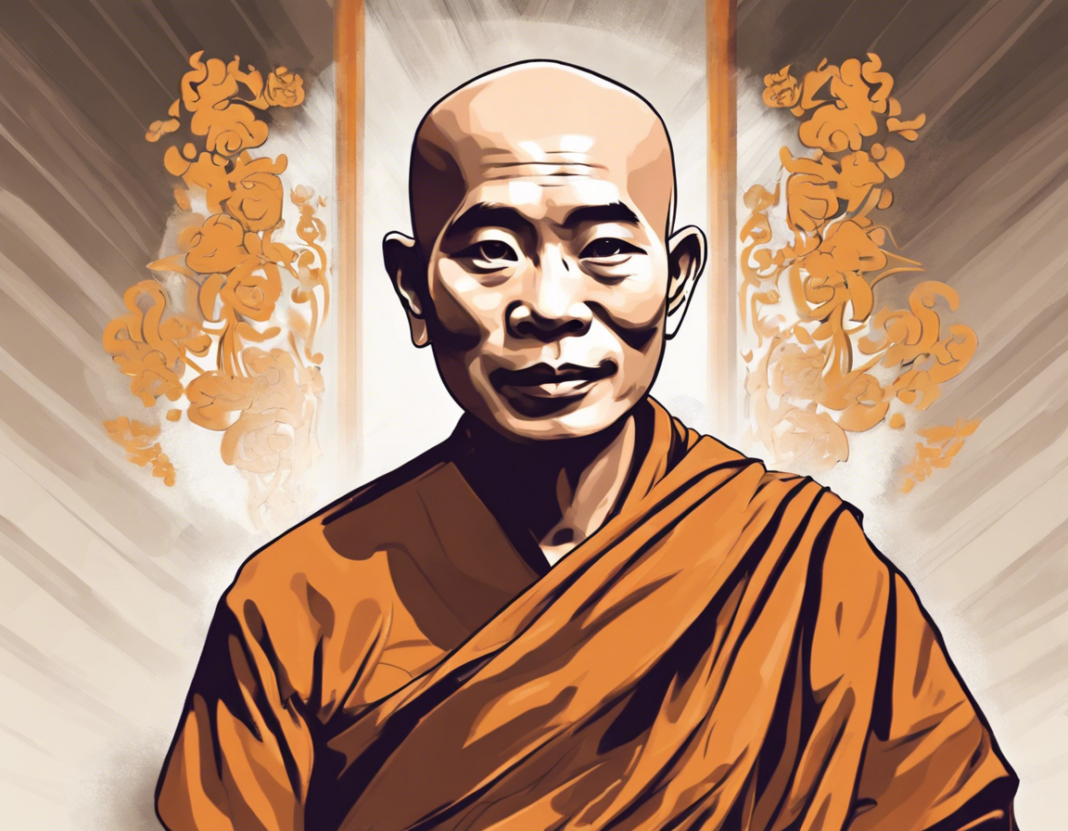In today’s digital age, the intersection of religion and politics is often a hot-button issue that can rapidly ignite controversy. Recently, a video of a monk-turned-politician has set social media abuzz, with debates raging about the appropriateness of spiritual leaders engaging in partisan politics. This incident raises important questions about the roles and responsibilities of individuals who straddle these two spheres.
The Monk-Politician Conundrum
Historically, monks have been revered for their detachment from worldly affairs, focusing on spiritual enlightenment and serving their communities through acts of compassion and wisdom. They are perceived as symbols of purity and selflessness, embodying sacred values that transcend the mundane concerns of everyday life. Politicians, on the other hand, are tasked with the governance of societies, making decisions that impact the lives of countless individuals. They navigate the intricacies of power, often engaging in strategic maneuvers to further their agendas.
When a monk enters the realm of politics, a complex intertwining of these two seemingly contradictory domains occurs. The purity and detachment traditionally associated with monastic life can collide with the rough and tumble of political discourse, where compromise and expediency often rule the day. The public scrutiny that comes with political office can tarnish the spiritual persona of a monk, leading to questions about their authenticity and motives.
Public Perception and Ethical Dilemmas
The controversy surrounding the monk-turned-politician video underscores the deep-seated unease many individuals feel about the merging of spiritual and political authority. The public often expects monks to embody moral rectitude and serve as beacons of righteousness, free from the taint of worldly corruption. When these figures dive into the murky waters of politics, they risk losing their aura of sanctity and becoming enmeshed in the same power struggles that define the political landscape.
Ethical dilemmas abound for monk-politicians, as they navigate competing demands on their allegiance and principles. How can a monk uphold vows of non-violence and compassion while engaging in the cutthroat world of political competition? Is it possible to maintain spiritual authenticity while making the compromises necessary for political success? These questions lie at the heart of the tension inherent in the dual role of a monk–politician.
Navigating the Grey Areas
As the monk-turned-politician video continues to generate debate, it raises broader issues about the boundaries between religion and state, spiritual leadership and civic duty. How can society strike a balance between respecting the spiritual autonomy of monks and holding them accountable as public figures? Should monks be barred from entering politics altogether, or is there a way for them to engage meaningfully without compromising their core beliefs?
One possible approach is for monk-politicians to engage in conscious reflection on their intentions and actions, ensuring that their political involvement aligns with their spiritual values. Transparency and accountability become crucial as they navigate the complexities of dual identity. By openly acknowledging the challenges they face and seeking guidance from both their spiritual mentors and political allies, monk-politicians can strive to uphold a standard of integrity that transcends the usual political fray.
In conclusion, the monk-turned-politician video serves as a stark reminder of the nuanced dynamics at play when religious figures enter the political arena. It urges us to grapple with fundamental questions about ethics, authenticity, and the role of spirituality in governance. As we continue to debate the merits and pitfalls of monk-politicians, we are confronted with the enduring tension between the sacred and the profane, the eternal and the temporal, in our shared quest for a more just and equitable society.
FAQs:
1. Can a monk be involved in politics without compromising their spiritual values?
– While it is challenging, it is possible for a monk to navigate the political landscape while upholding their core beliefs. Transparency, accountability, and seeking guidance are key.
2. Should monks stay out of politics altogether?
– There is no definitive answer to this question, as it ultimately depends on individual circumstances and beliefs. Some argue that monks have a duty to engage in social issues, while others believe they should remain aloof from political affairs.
3. How does the public perceive monk-politicians?
– The public’s perception varies widely, with some viewing monk-politicians as principled individuals bringing spiritual wisdom to governance, while others see them as opportunistic or compromising their values.
4. What are some ethical dilemmas faced by monk-politicians?
– Monk-politicians grapple with issues such as maintaining non-violence and compassion in a political context, balancing spiritual authenticity with political expediency, and navigating the demands of their dual roles.
5. How can monk-politicians navigate the grey areas between religion and politics?
– By engaging in introspection, seeking advice from mentors, and being transparent about their actions, monk-politicians can strive to find a balance that honors their spiritual commitments while actively participating in governance.
